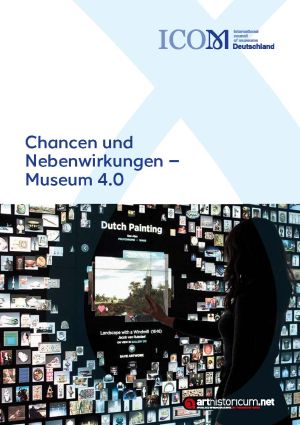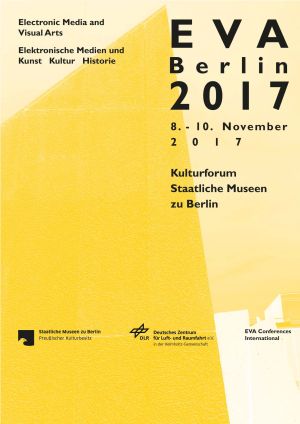Wienand, Johannes
Chancen und Nebenwirkungen – Museum 4.0: Jahrestagung von ICOM Deutschland, 14. bis 16. November 2019 in München. Tagungsband
The challenges of museums in the digital age are manifold, but where to begin in view of the multitude of tasks? The 2019 annual conference of ICOM Germany used interesting case studies – Museum4punkt0, NUMiD, ViSIT (University of Passau), Cadolzburg (Bavarian Palace Administration), Digital Strategy for Museums (State Office for Non-Governmental Museums in Bavaria), and many others – to discuss different perceptions of the field of digitization in cultural establishments, individual fields of action, and difficulties that often arise in museum reality. As diverse as the museums are, the twenty or so examples presented make it clear: If digitization is to be a successful sustainable opening of museums to the digital and thus extend beyond individual digital mediation offers, emphasized Julian Nida-Rümelin in the introduction, it must go hand in hand with a digital mindset and a corresponding work culture. Furthermore, a digital strategy that suits one’s own institution as well as sufficient resources and the support of the museum sponsors are important requirements.
Konferenzband EVA Berlin 2017. Elektronische Medien & Kunst, Kultur und Historie: 24. Berliner Veranstaltung der internationalen EVA-Serie Electronic Media and Visual Arts
The digital transformation of cultural heritage is a generative and co-creative process. It has long ceased to be the reproductive digitization of collection objects, but rather the imprinting of authentic experience equivalents. Telepresence technologies and three-dimensional visualizations enable a virtual re-enactment of the collections in documentation and mediation. Not as a digital twin, but as a documentary and functional enriched digital unicum, the object leaves the museum space and unfolds its own virtual, smart and shared heritage its own, auratic effectiveness in the Internet of Things, in social networks, on gaming platforms or in research and science. In addition to broader access to cultural heritage, new forms of circulation of knowledge and the differentiation of public media environments are on the digital agenda of the GLAM institutions.
The 24th Berlin EVA Conference 2017 is the forum where these topics are developed - at the interface between memory institutions, technology developers, information scientists and public administrations.








